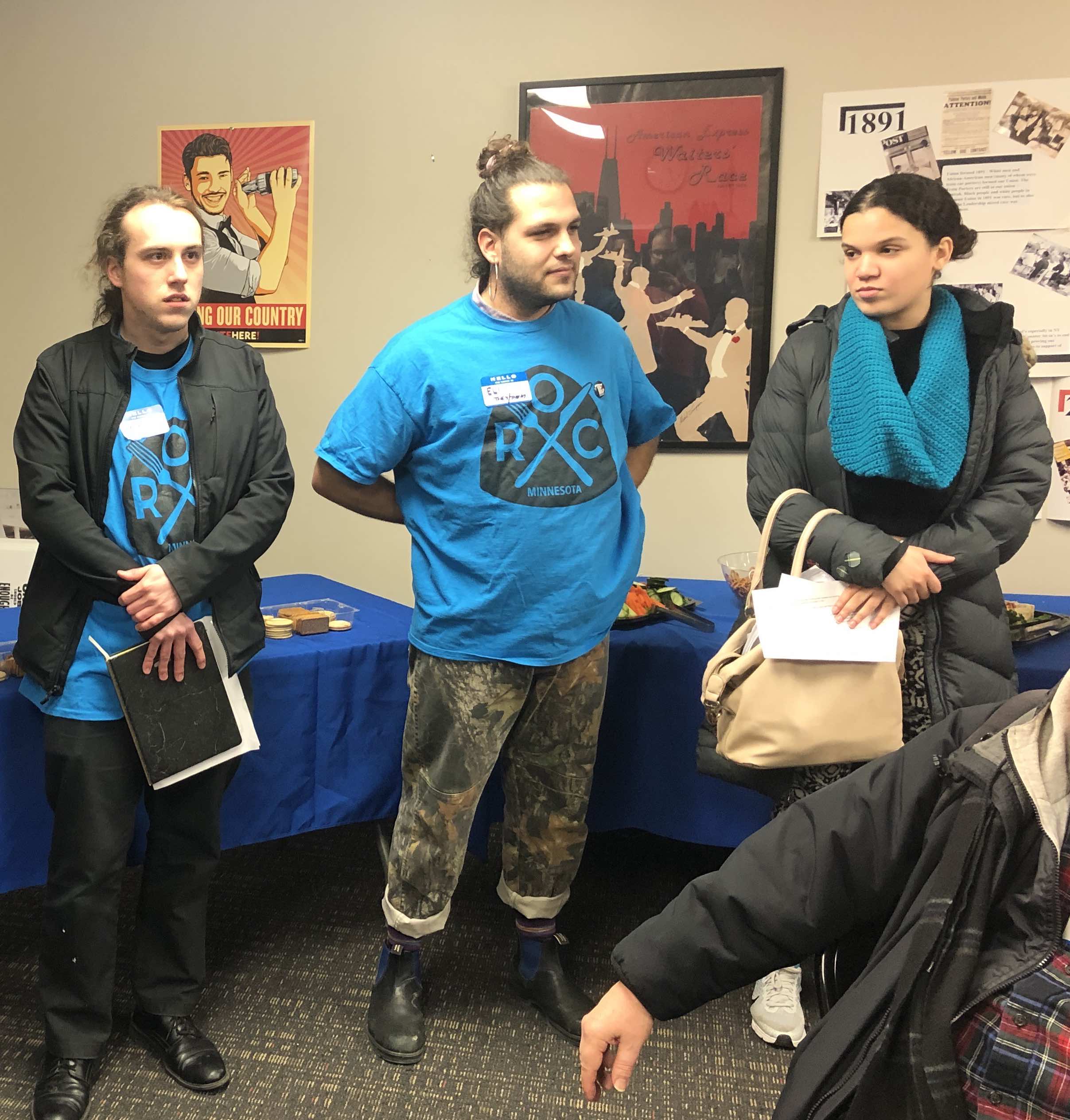

Share
Restaurant Opportunity Center (ROC) Minnesota has made its presence felt in advocating for Restaurant workers and the Fight for $15. At an open house last week at the UNITE Here offices in northeast Minnesota, representatives from ROC MN spoke directly to union members about their work and vision. ROC Lead Organizer Eli Edleson-Stein announced that after years of operating as a volunteer organization they now have 1.5 staff members dedicated to their work.
Edleson-Stein pointed out that in the United States, 1 in 3 individuals works in the restaurant industry at some point in their life and over half have had their first job in restaurants. The most maddening statistic discussed is that in Minnesota just under 10% of the private sector workforce is in restaurant work. However, the industry accounts for over a quarter of all wage theft claims and is the number one source of sexual harassment claims filed by women to the Equal Employment Opportunity Commission. At ROC MN these disparities are a great cause for concern and demand action and organizing.
According to Edleson-Stein, in addition to ROC MN’s advocacy for a $15 minimum wage without a tip credit, they have also “started to take on workplace fights, as a strategy to build political consciousness and a political identity for workers in the restaurant industry.” Ther intent is to work with unions to build collective power for all workers.
Mia Bradford has been a ROC organizer ever since she stood up to bosses that took half her tips, and decided she wouldn’t take it anymore. Bradford has seen co-workers living paycheck to paycheck, struggling to survive on low wages compounded by stolen tips. Many are also going to school or are single mothers and are sleep deprived trying to balance everything just so they can pay the rent and have a place to live. For many, the only way to catch up is to grind harder and work more hours. Bradford learned that instead of devoting more time and energy to an abusive workplace, it’s better to organize and change that environment. An abusive workplace means that the job becomes a massive barrier in a worker’s ability to succeed in life.
Bradford further expressed her motivations saying, “Everyone has hardships in life, but you don’t have to deal with them alone. If we come together then we can win. When we fight families can afford school clothes for their kids. When we fight, people can afford rent. When we fight, those people in school can sleep. When we fight single mothers can enjoy playing with our kids instead of worrying about a financial crisis. When we fight, we stop anxiety, depression, mental illness from living like your whole life, your whole world will collapse if you don’t have enough for rent.”
Kevin Osborne has been working in the restaurant industry since he was 17. Osborne made sure to let the labor members and leaders know that long-standing labor standards, common for unionized workforces are nonexistent in the restaurant industry. Wage theft, overwork, and other day-to-day indignities are rampant.
He expressed his frustrations with the industry commenting that, “I figured that everybody here, whether organized or unorganized, we got the same problem. We work for a boss, a business owner or an investor that figures, they know a hell of a lot about us. They figure they know if we need health care. They figure they know if we make enough to pay our rent. They figure they know if we deserve paternal or maternal leave to be with our kids. They seem to know a hell of a lot about us and they seem to know what we deserve and it usually seems to be damn little when even a sliver of their profits is on the line.”
Osborne remembers that since his first day in the industry washing dishes, he’s been told that it’s impossible to organize restaurant workers. He heard it so many times that he started to believe it. But with the support of the assembled crowd, the impossible seems possible.

